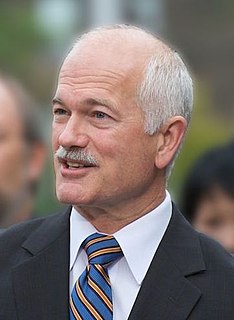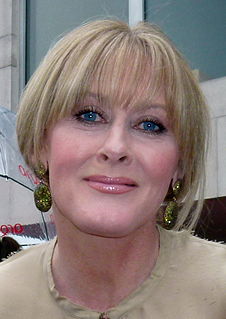A Quote by Maurice Strong
We in the industrialized world make a greater difference because our ecological footprint, our impact on the condition of the environment, is 40 to 50 times larger than that of people in the developing world.
Related Quotes
We see a world of abundance, not limits. In the midst of a great deal of talk about reducing the human ecological footprint, we offer a different vision. What if humans designed products and systems that celebrate an abundance of human creativity, culture, and productivity? That are so intelligent and safe, our species leaves an ecological footprint to delight in, not lament?
We are living as if we had three planets' worth of resources to live with rather than just one. We need to cut by about two-thirds our ecological footprint. For that we need one planet farming as well as one planet living - one planet farming which minimises the impact on the environment of food production and consumption, and which maximises its contribution to renewal of the natural environment
We're starting with our own carbon footprint. Not nothing. But much of what we're doing is already, or soon will be, little more than the standard way of doing business. We can do something that's unique, different from just any other company. We can set an example, and we can reach our audiences. Our audience's carbon footprint is 10,000 times bigger than ours... That's the carbon footprint we want to conquer.
Belonging is the innate human desire to be part of something larger than us. Because this yearning is so primal, we often try to acquire it by fitting in and by seeking approval, which are not only hollow substitutes for belonging, but often barriers to it. Because true belonging only happens when we present our authentic, imperfect selves to the world, our sense of belonging can never be greater than our level of self-acceptance.
And finally, to all Canadians: Canada is a great country, one of the hopes of the world. We can be a better one – a country of greater equality, justice, and opportunity. We can build a prosperous economy and a society that shares its benefits more fairly. We can look after our seniors. We can offer better futures for our children. We can do our part to save the world's environment. We can restore our good name in the world.
Our environment, the world in which we live and work, is a mirror of our attitude and expectations. If we feel that our environment could stand some improvement, we can bring about that change for the better by improving our attitude. The world plays no favorites. It's impersonal. It doesn't care who succeeds and who fails. Nor does it care if we change. Our attitude toward life doesn't affect the world and the people in it nearly as much as it affects us.
Suffering invites us to place our hurts in larger hands. In Christ we see God suffering – for us. And calling us to share in God’s suffering love for a hurting world. The small and even overpowering pains of our lives are intimately connected with the greater pains of Christ. Our daily sorrows are anchored in a greater sorrow and therefore a larger hope.
A child born in a wealthy country is likely to consume, waste, and pollute more in his lifetime than 50 children born in developing nations. Our energy-burning lifestyles are pushing our planet to the point of no return. It is dawning on us at last that the life of our world is as vulnerable as the children we raise.
The difference in the quality of medical care received by people with mental illness is one of the reasons why they live shorter lives than people without mental illness. Even in the best-resourced countries in the world, this life expectancy gap is as much as 20 years. In the developing countries of the world, this gap is even larger.
Now more than ever the world has to come together to make changes. Just because certain cultures have had long-standing traditions does not mean that in today's world they are acceptable any longer. The world and the environment are evolving and that means we must change our ways as human beings as well.



































